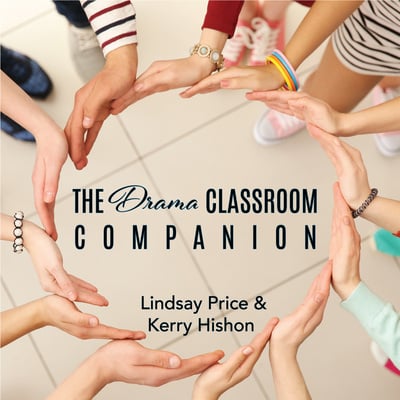The Dread Pirate Sadie: All the pirates, sword fights, and unforgettable characters - now in a competition-length version!
The Importance of the Off-Book Rehearsal
Creating an effective rehearsal schedule is a crucial part of a school production’s success. There are many important rehearsals to allot time for, including this one: the off-book rehearsal.
What is the off-book rehearsal?
This is the rehearsal for which actors must have all lines (and lyrics, in the case of a musical) completely memorized. Sounds simple enough.
Why is an official off-book rehearsal so important?
First and foremost, students need a hard deadline to have their lines memorized. Students are busy and it’s easy to procrastinate on learning lines. The off-book day gives them a chance to see how many of their lines they actually know and how much of their blocking they’re able to retain while performing their lines (“Wait, where do I exit again?”).
When it comes down to it, memorization of lines is only the tip of the iceberg with acting. If students are struggling to remember their words, they can’t focus on every other aspect of acting – characterization, subtext, physicality and movement, connecting with fellow actors, volume and diction, and so on.
The off-book day also provides an opportunity to measure your students’ commitment. A show is only as strong as the weakest performer in it, and a student who hasn’t fully memorized their lines by off-book day is wasting everyone’s time. It’s disrespectful to others who have taken the time to learn their lines, and causes stress for everyone.
However, off-book day isn’t just for students – it’s important for teachers as well, as it gives us a deadline to have all the scenes blocked. In addition to providing a hard deadline for students to be fully memorized, the goal of off-book day is to do a full “stumble-through” of the show from top to bottom. This is your reality check rehearsal. It gives everyone – teachers and students alike – the opportunity to see how much of the show is actually complete, and identify any parts that need adjusting or fixing or have been missed or forgotten altogether. Therefore, determining when to schedule your off-book day is of utmost importance.
When should you schedule the off-book rehearsal?
Some directors follow the rule that once a scene is blocked, students must be off-book for that scene by the next rehearsal. The thought is that students should have an easier time memorizing small chunks of the script throughout the rehearsal process, rather than trying to cram all their lines into their brains at a later date. Whether or not that actually happens is up to the student!
When I’m directing a show, I schedule the off-book rehearsal to be two-thirds of the way through the rehearsal process. To do this, make a list of all your rehearsals, or plot them onto a calendar, and count back from technical rehearsal. (I don’t count tech and dress rehearsals as part of the rehearsal dates – if students aren’t off-book by technical rehearsal, that’s a big problem!) For example, if you have 24 rehearsals, you’d make the 16th one off-book day.
You may want to adjust the date a little bit, depending on your knowledge of your students. For example, is it more realistic for your students to be off-book for the last rehearsal before winter break, or for the first rehearsal back from a long weekend? You know your students best, so adjust accordingly – one or two days earlier or later isn’t a deal-breaker. However, I’ve found the two-thirds mark to be a “sweet spot” for scheduling the off-book day. It’s not so early in the rehearsal process that it’s unrealistic for students to be fully memorized, but it’s not so late that it causes panic before tech and dress rehearsals, and there is still time to tie up loose ends, such as scenes that need adjusting or transitions that were missed. I also clearly indicate when off-book day will be during the first rehearsal, when I am going over important dates with my students. I put it right on the rehearsal schedule so nobody can claim they didn’t know, or that I didn’t tell them when it was. No excuses!
Clearly indicating the off-book rehearsal on the schedule creates accountability for everyone involved in the production. Having that clear deadline will reduce stress and make the rehearsal process smoother.
Related Articles
The Drama Classroom Companion
by Lindsay Price & Kerry Hishon
The Drama Classroom Companion is filled with articles and exercises to build the skills needed for theatrical performance as well as real world skills like creative thinking, critical thinking, collaboration, and communication.
The Rehearsal Companion
by Kerry Hishon
You’ve chosen the play, paid the royalties, done the script analysis, held your auditions, and cast the show. Tomorrow is the first rehearsal. Are you ready? Really ready? The Rehearsal Companion can help!





